Whether you're looking for a cryptocurrency with strong privacy protections or one that emphasizes governance and stakeholder input, both Decred and Firo are worth investigating.
Cryptocurrencies have come a long way since the creation of Bitcoin in 2009. With over 10,000 cryptocurrencies in circulation, the market has become increasingly crowded and competitive. With the rise of privacy concerns in the digital age, privacy-focused cryptocurrencies like Decred and Firo have gained popularity for their commitment to innovation and user protection.
Decred was launched in 2015 by a group of Bitcoin developers who recognized the need for a more transparent and democratic governance structure in cryptocurrency. Decred's ethos is centered around community governance and stakeholder voting, ensuring that users have a say in the direction of the project. This decentralized approach to decision-making has given Decred a loyal base of users who value transparency and community involvement.
Firo has a lot in common with Decred in terms of ethos and community involvement. It was originally launched as Zcoin in 2016, and the decision to change the name to Firo was made in 2020, with the name chosen to reflect the project's belief in financial freedom and privacy. In addition to the name change, Firo also underwent a rebranding process, with a new logo and website design to reflect the updated name and focus on privacy.

Let's compare and contrast these two cryptos, examining their operation, funding, privacy, and transactions. By examining the characteristics of each platform, we hope to provide readers with a deeper understanding of these innovative cryptocurrencies and the value they offer to users.
Operation
In terms of operation, Decred uses a hybrid consensus mechanism that combines Proof-of-Work (PoW) and Proof-of-Stake (PoS) to provide a decentralized governance structure. PoW miners are responsible for providing the computational power, securing the network, and validating transactions, for that they receive 10% of block rewards. PoS stakeholders are responsible for validating mined blocks, governance power in the form of approving consensus upgrades and treasury spending . By voting on proposals on the Politeia platform they decide the future of the Decred project and receive 80% of the block rewards. The remaining 10% gets directed to the Decred treasury, which funds the development and every proposal approved on Politeia.
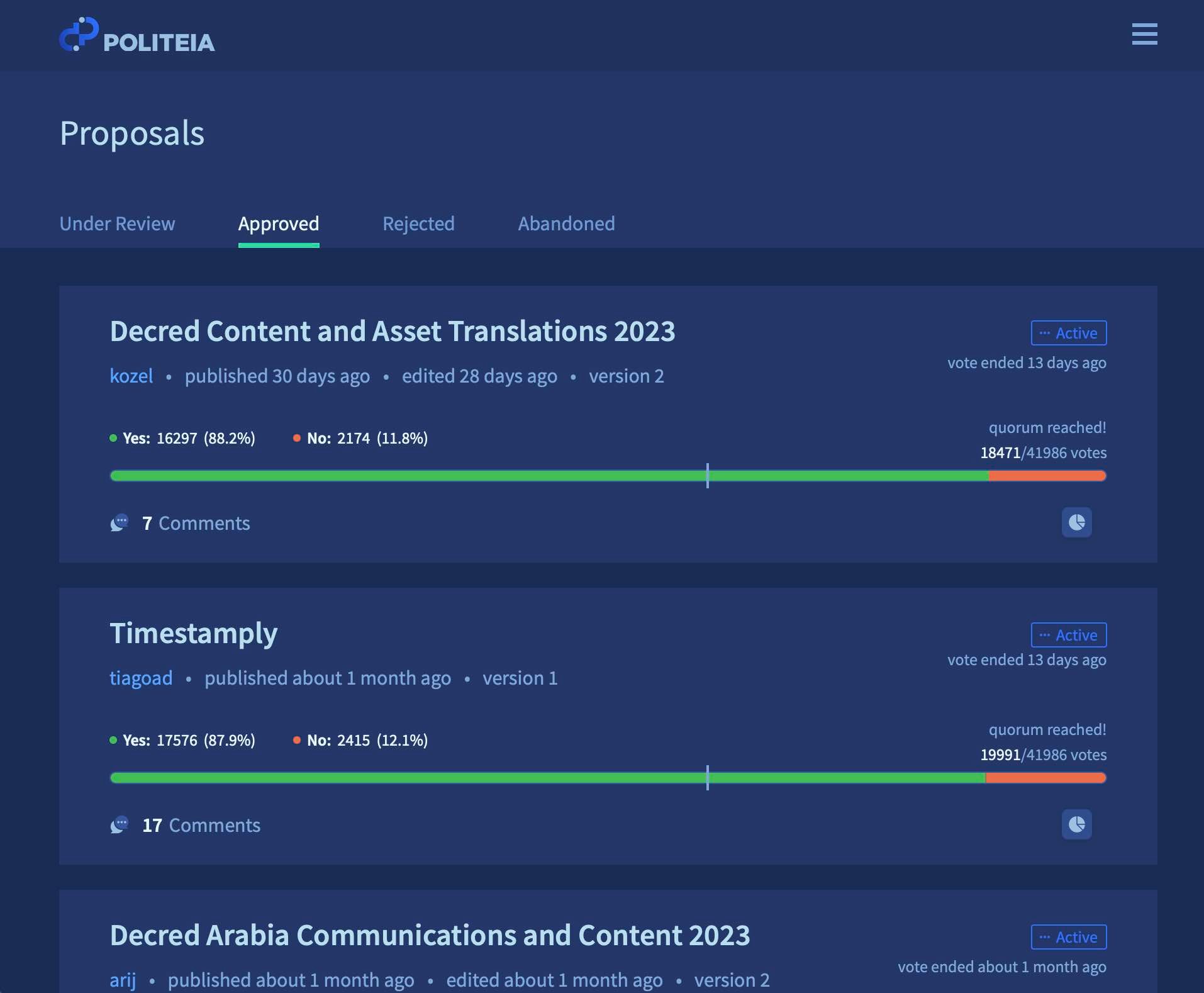
Firo uses also a hybrid consensus mechanism but combines PoW with a technology called LLMQ chainlocks to enhance the security and reliability of its PoW network. LLMQ (Long-Living Masternode Quorums) is a technology that allows Firo to achieve near-instant finality of transactions. It works by creating a quorum of masternodes, which are nodes on the Firo network that provide additional services and receive rewards for their participation. These masternodes are selected to form a quorum that can validate transactions and confirm their validity.
The use of LLMQ chainlocks and masternodes provides an additional layer of security and reliability to the PoW network. With larger masternode quorums attacks become much more costly, since you would need to control a much greater number of nodes to have a chance at influencing quorum decisions.
Is it worth noting that Firo implemented higher security since the project had a significant issue in the past, which is referred to as the "inflation bug". In October 2020, a critical vulnerability was discovered in Firo's code, allowing an attacker to create an unlimited amount of coins. The Firo community united to close off the bug quickly, contacting the mining pools who performed an emergency fix to stop the attack and instructing major exchanges such as Binance, Huobi, Bittrex, MXC, and AEX to shut down deposits/withdrawals and lock down funds that had not been traded yet.
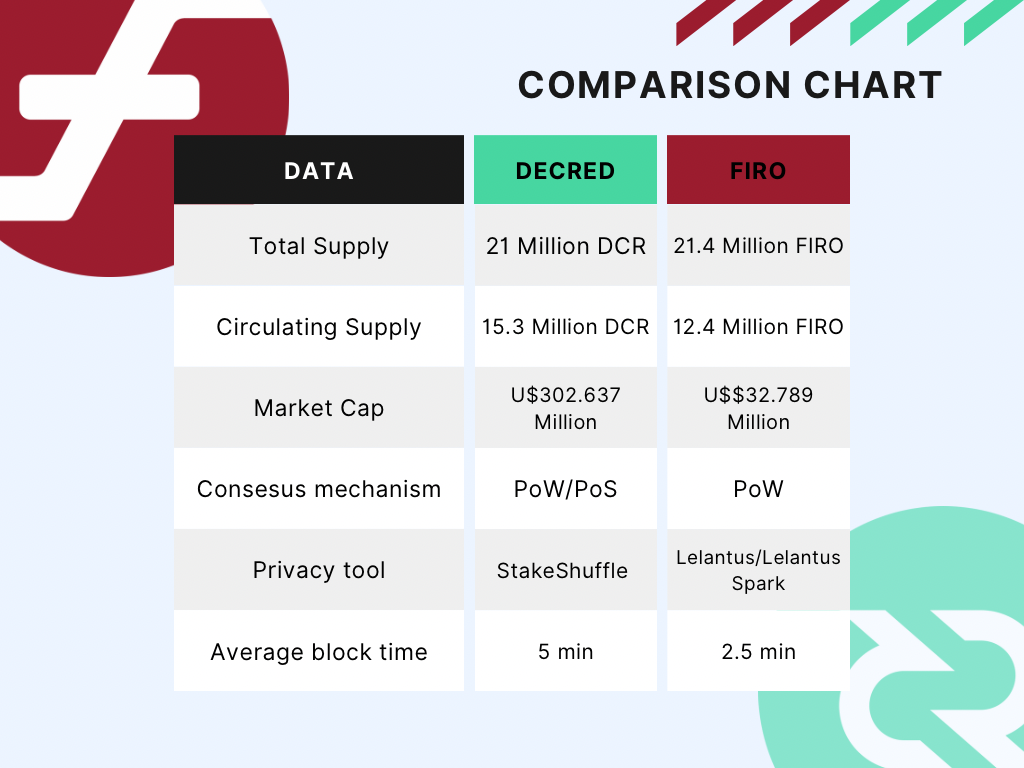
Funding
Both Decred and Firo direct a part of the block rewards to the funding of the project. Firo has two different funds, the current block reward of 6.25 FIRO/block is divided as follows:
- Development Fund (15%, 0.9375 FIRO)
- Community Fund (10%, 0.625 FIRO)
The development fund gets directed to the core team, who manages the continued development, research, accountability, and community growth. Additionally, the community fund is directed by all community members who are also masternodes, they vote for proposals on the Firo Crowdfunding system.
As we know Decred directs 10% of each block reward to its treasury, and all these funds get managed through the Politeia platform. Decred has no exclusive funding for any core team, this means that every decision is taken by stakeholders, given the importance of decentralization for Decred.
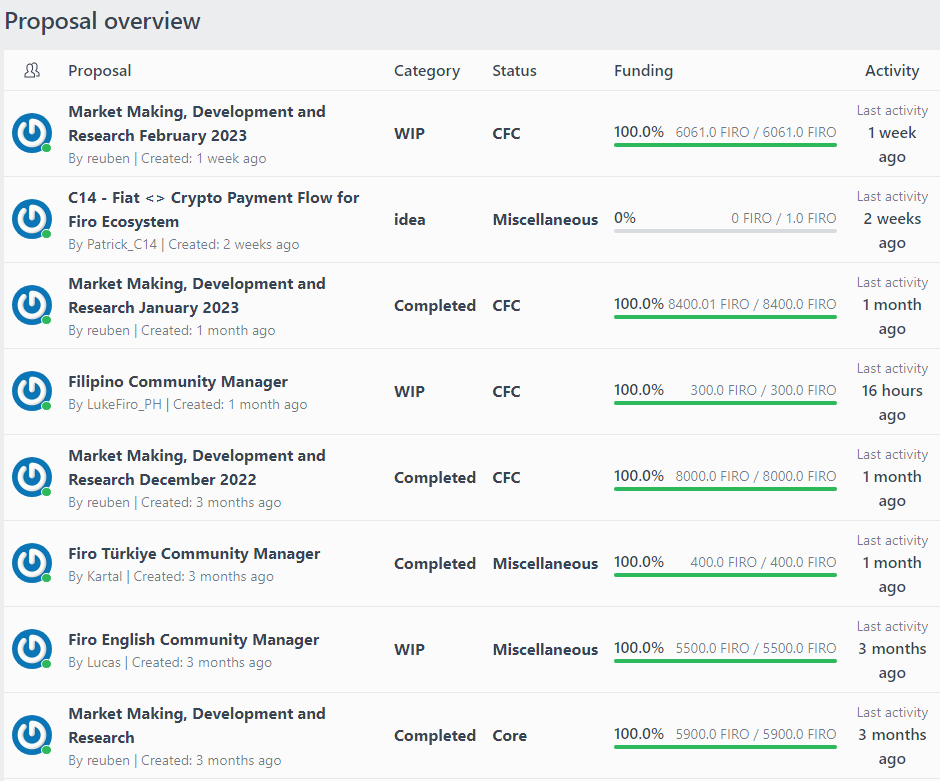
Transaction and privacy
Firo is a cryptocurrency that places a strong emphasis on ensuring user anonymity and transaction privacy. The platform uses several advanced privacy protocols to achieve this goal, including the Lelantus and Lelantus Spark, which provides trustless, on-chain privacy with high anonymity sets. Dandelion++ technology also provides network-layer privacy.
Lelantus is an advanced privacy protocol that ensures complete privacy and anonymity for Firo transactions, making it impossible to trace a transaction back to a user. Lelantus Spark is a lighter version designed for mobile and IoT devices that still provides strong privacy protections.
Decred uses CoinShuffle++ (CSPP) mixing protocol to obfuscate ownership of DCR. Output addresses get anonymized via mixnet, a cryptographic protocol executed by mix-servers that provide anonymity for a group of senders.
Regarding transaction speed, it's worth mentioning that both Firo and Decred offer fast transactions. Firo's implementation of InstantSend is optimized to work with its privacy features such as Lelantus, while Decred's implementation of Lightning Network ensures faster, cheaper transactions and enables the system to scale. Ultimately, the transaction speed on both networks can be relatively fast depending on the specific circumstances of each transaction.
Moving Foward
Ultimately, both projects share a commitment to decentralization, community-driven development, and innovative technologies. Whether you're looking for a cryptocurrency with strong privacy protections or one that emphasizes governance and stakeholder input, both Decred and Firo are worth considering.
For more information, listen to Tivra's Twitter Space with Firo Co-Founder & Project Steward Reuben Yap.



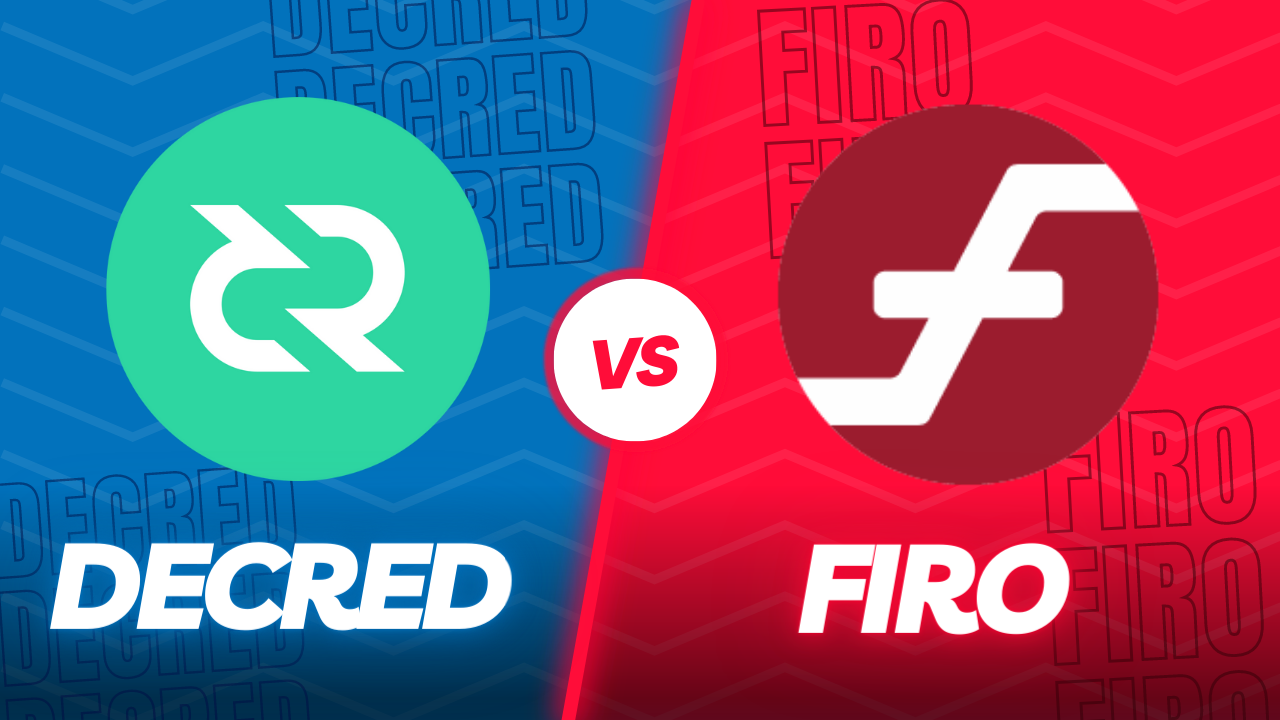

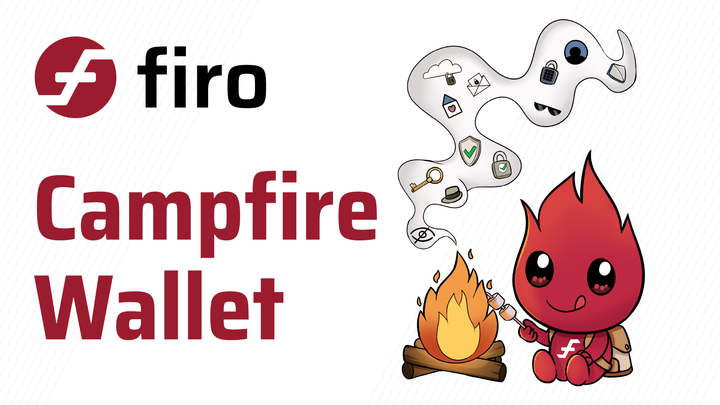

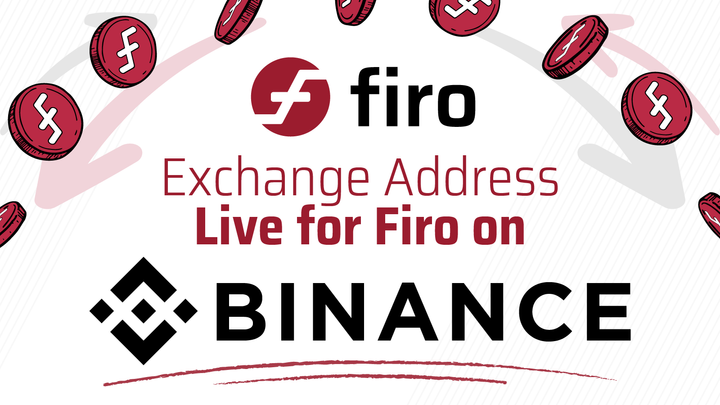
Comments ()